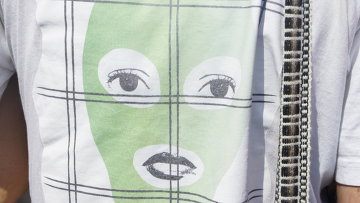MOSCOW, November 12 - RAPSI. The Federal Service for Intellectual Property, Patents and Trademarks (Rospatent) has refused to register a Pussy Riot trademark in the name of a business owned by the wife of Mark Feygin, defense attorney for the two convicted band members. The refusal is based specifically on the fact that the combination of words may be interpreted as negative and provocative, Izvestia reported.
"Additionally, the word combination is absolutely similar to the name of a notorious punk band, whose members have been convicted for hooliganism based on religious hatred and animosity," the document reads in part.
The group's representatives believe the trademark was refused illegally and with a definite purpose.
"This resolution was ordered from the top," Nikolai Polozov, another attorney for the convicted Pussy Riot members said. "We will make a decision on appealing the resolution within a week."
Veb-bio, the company reportedly owned by Feygin’s wife has initiated proceedings to trademark the Pussy Riot brand outside of Russia as well, including in Germany, Switzerland, and the UK, and under the European patent authorities. It remains unclear who will profit from these trademark registrations, but former band member Samutsevich is not impressed. Samutsevich demands that Feygin give up his rights to the band's trademark. Speaking with Kommersant correspondent Sergei Badamshin, Samutsevich's current attorney confirmed that he was discussing the issue of rights and use of the brand with her, but refused to disclose any details, citing attorney-client privilege.
In late February, five young women wearing brightly colored balaclavas performed a "punk-style" prayer at the altar of Moscow's Christ the Savior Cathedral. An edited video of their performance that was posted on the Internet caused a public outcry. Members Nadezhda Tolokonnikova, Maria Alyokhina, and Yekaterina Samutsevich were arrested shortly thereafter.
The Khamovnichesky District Court sentenced the three Pussy Riot members to two years in prison for hooliganism on August 17. Later, the Moscow City Court commuted Samutsevich's sentence from two years in prison to immediate release on probation due to the fact that she was detained by security prior to reaching the stage and did not actually participate in the protest.
The judge left Tolokonnikova and Alyokhina's sentences intact.



